There has been a lot of discussion about 100G recently. This year, a new alliance called the SWDM Alliance was established, which utilizes WBMMF fiber, and the WBMMF standard will be released next month.
Today, let’s discuss what this is about.
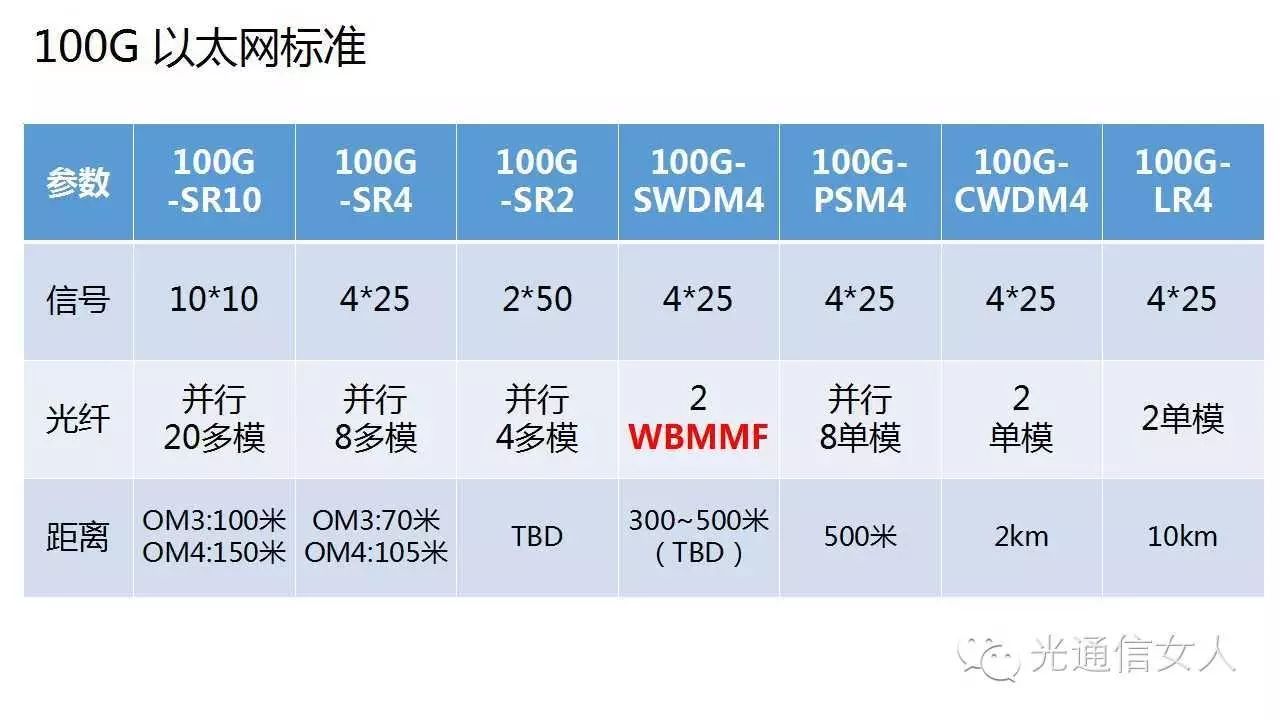
The alliance includes many manufacturers, including Commscope (promoting WBMMF), Corning, Panduit, OFS, Prysmian fiber manufacturers, and Finisar (promoting SWDM4) and Lumentum module manufacturers.
What is the purpose of promoting these technologies?
According to Guohua’s view: it is to cope with high-speed rates.
To increase module speed, there are several conventional methods:
-
Increase signal rates: 2.5G—10G–25G–40/50G, which is about the extent of current development.
-
Array, parallel, multi-channel, parallel, 2x, 4x, 8x; with more fiber arrays, it becomes unmanageable.
-
Wavelength division multiplexing.
-
Serial transmission, such as PAM4, PAM8…
From the table above, there is still hope for 100G to achieve 4*25, whether through parallel or wavelength division, everyone has been pondering how to manage this for many years.
In short-distance applications, the cost advantage of VCSEL makes it hard for everyone to give up. SWDM4 stands for short wavelength division multiplexing.
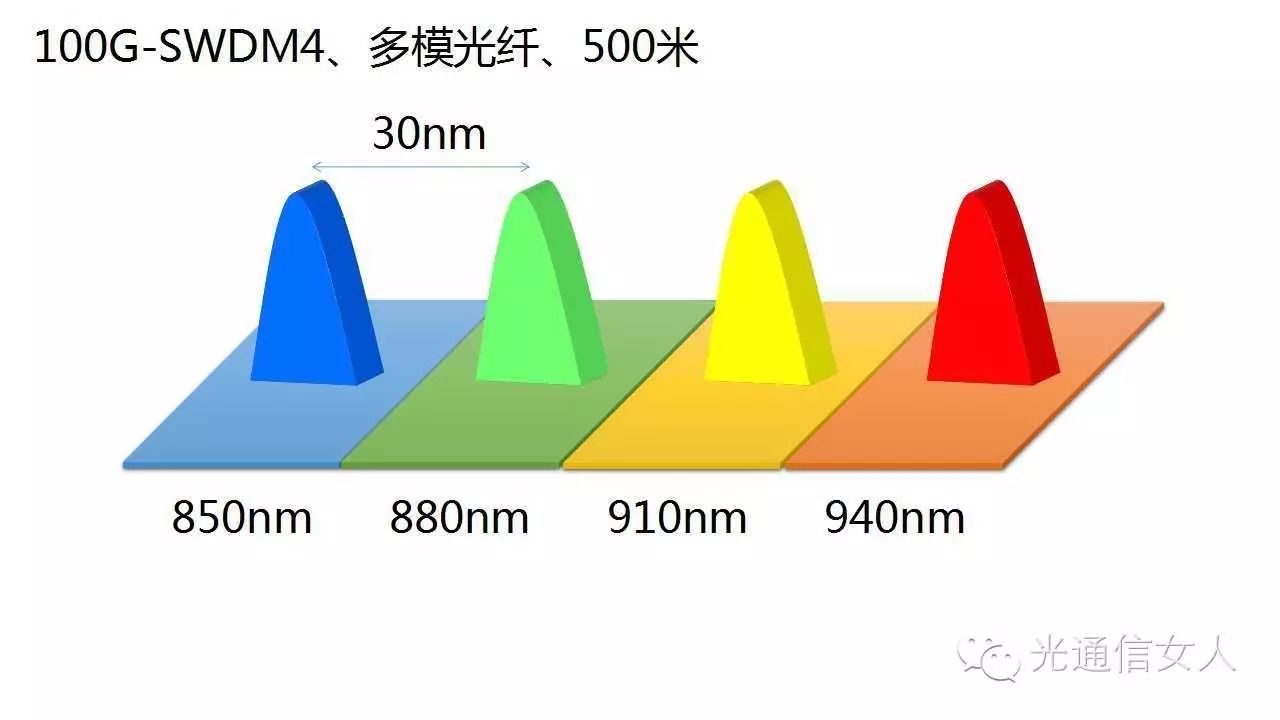
Of course, it can also be achieved using four multimode fibers.
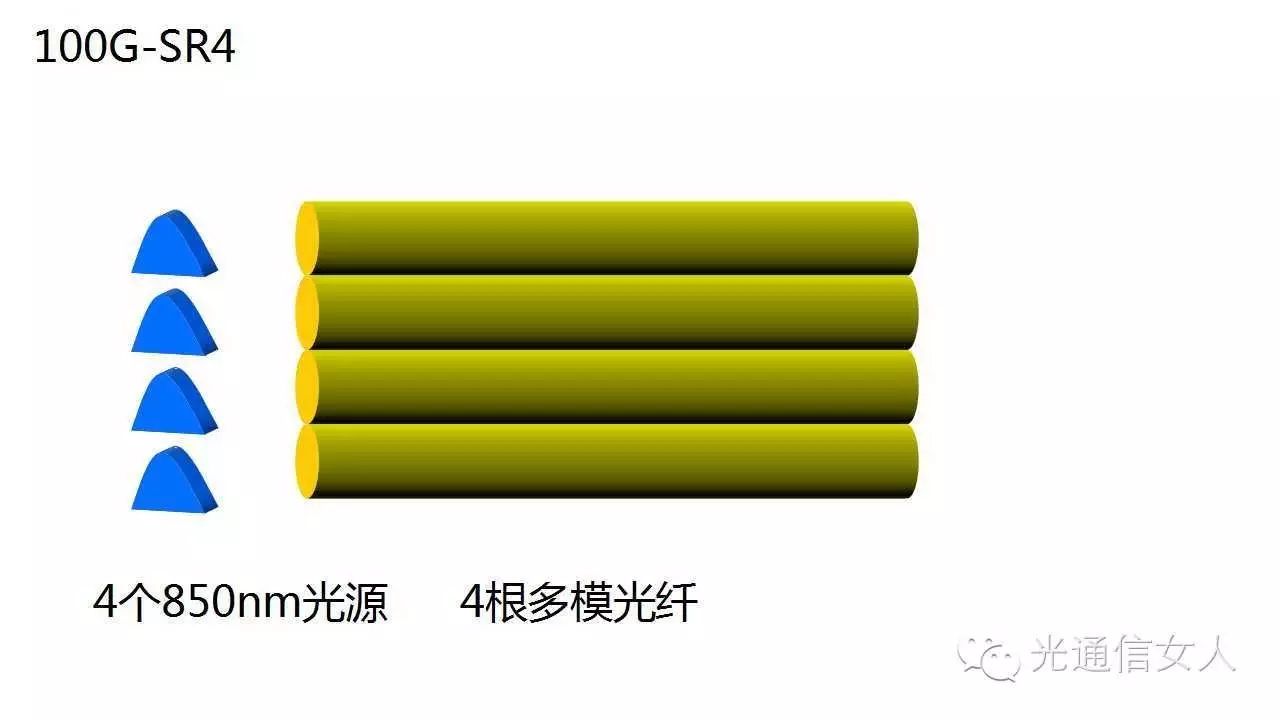
Using OM3 and OM4 multimode fibers is sufficient.
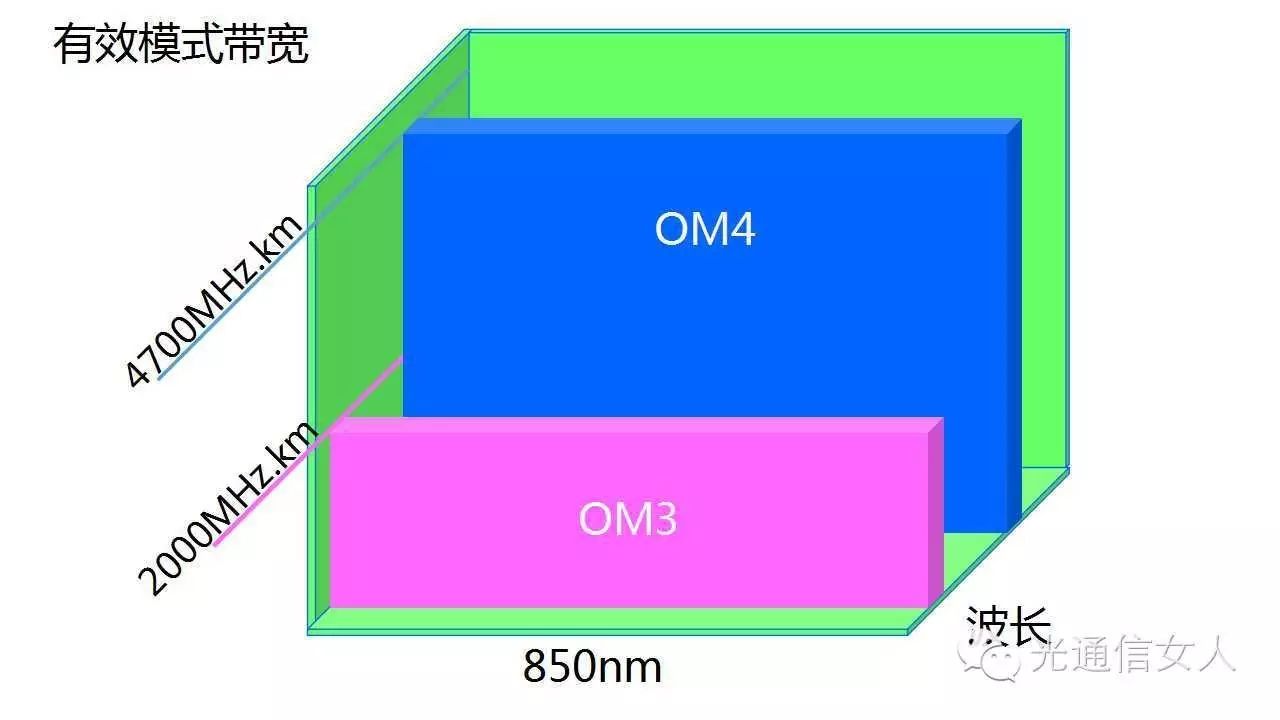
Short wavelength division multiplexing, SWDM4, enables the transmission of four 25G signals using only one fiber, with two fibers being sufficient for one receive and one transmit.
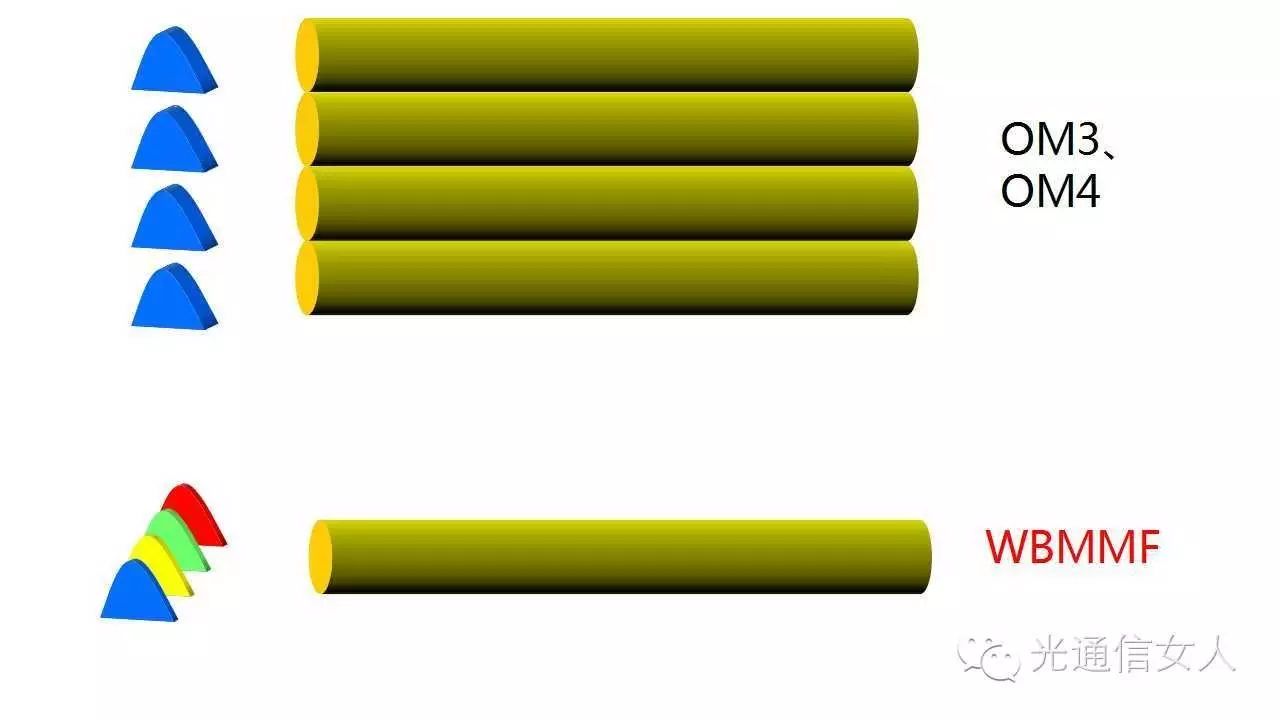
To use SWDM4, multimode fiber needs to utilize WBMMF (wide band multimode fiber).
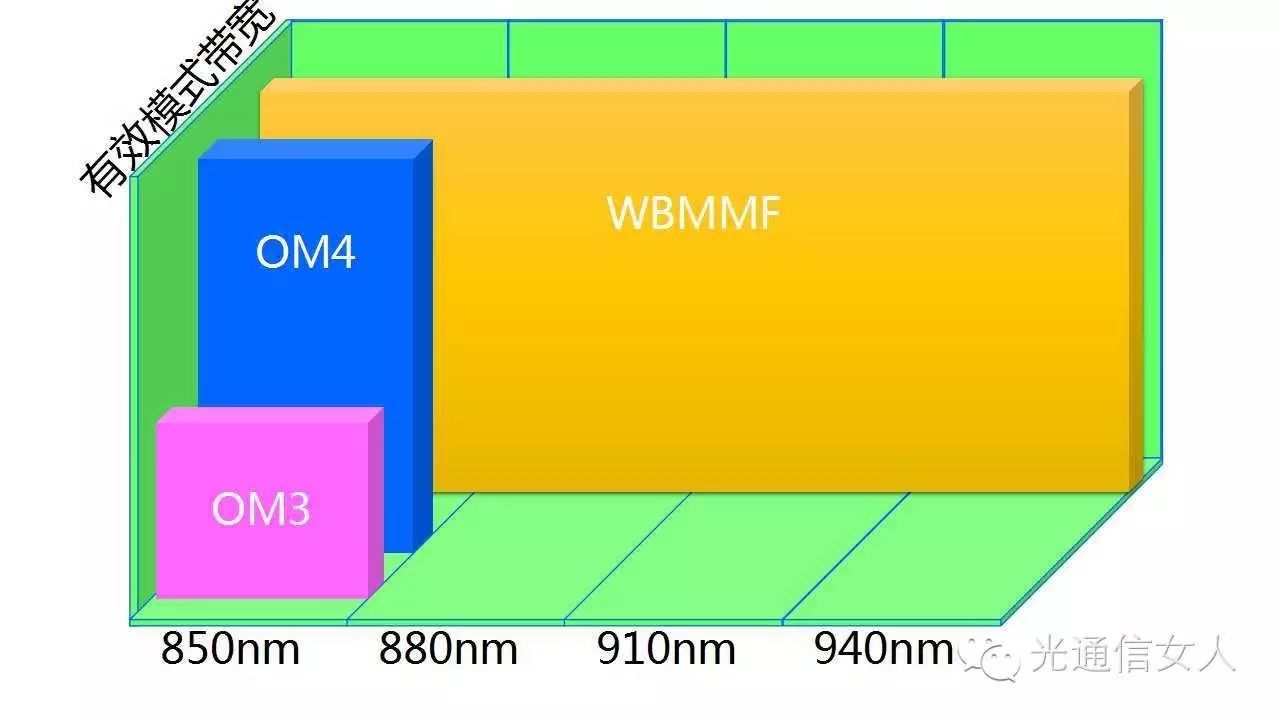
This supports multimode wavelength division multiplexing. The previous 100G wavelength division multiplexing was for single-mode long-distance transmission.
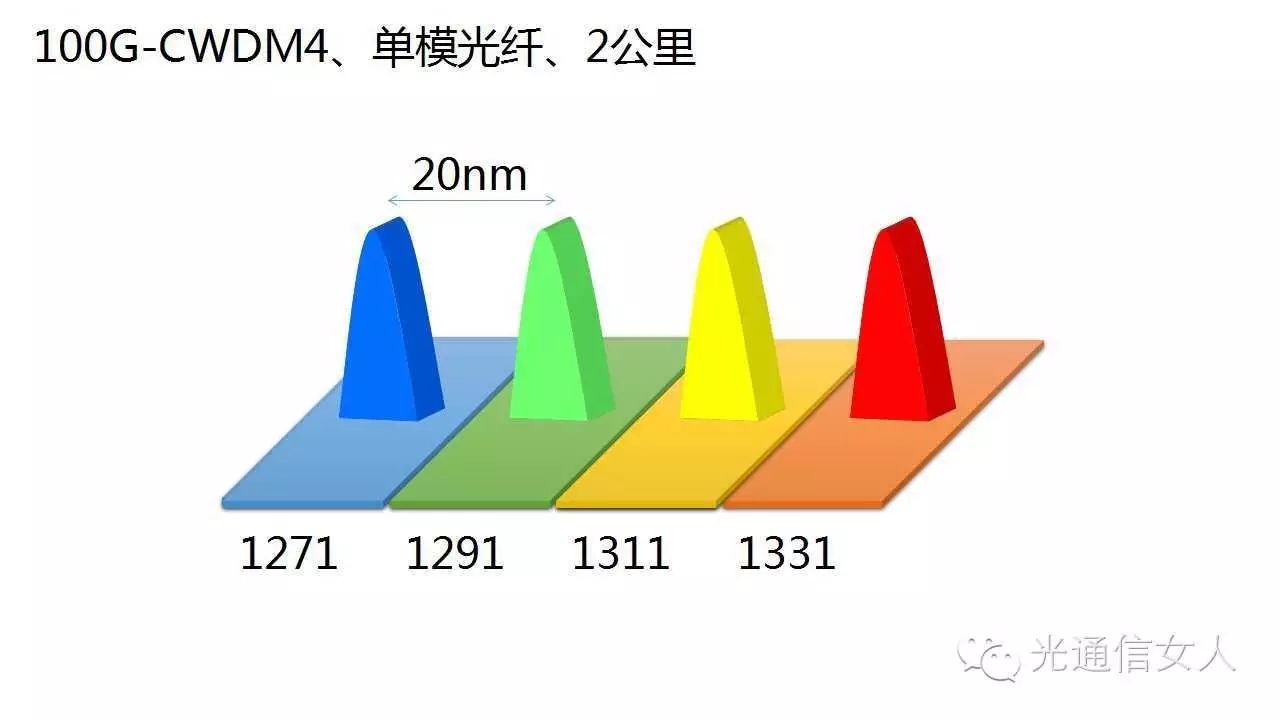
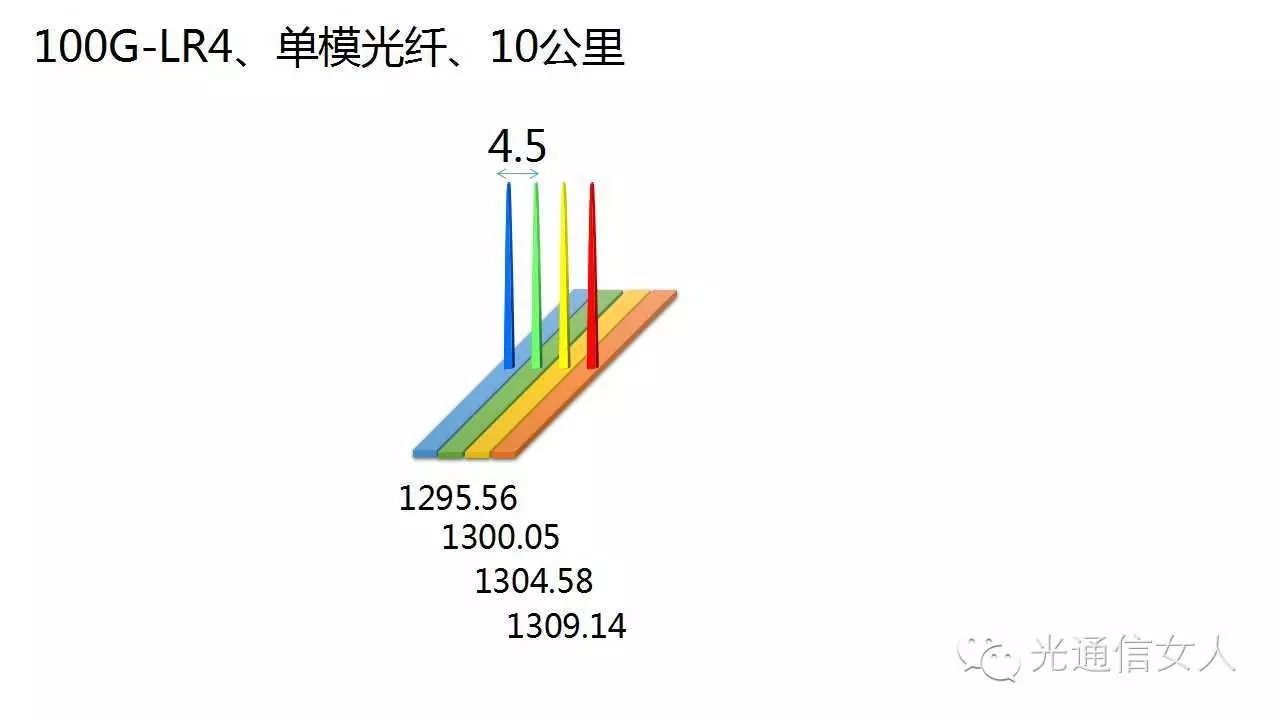
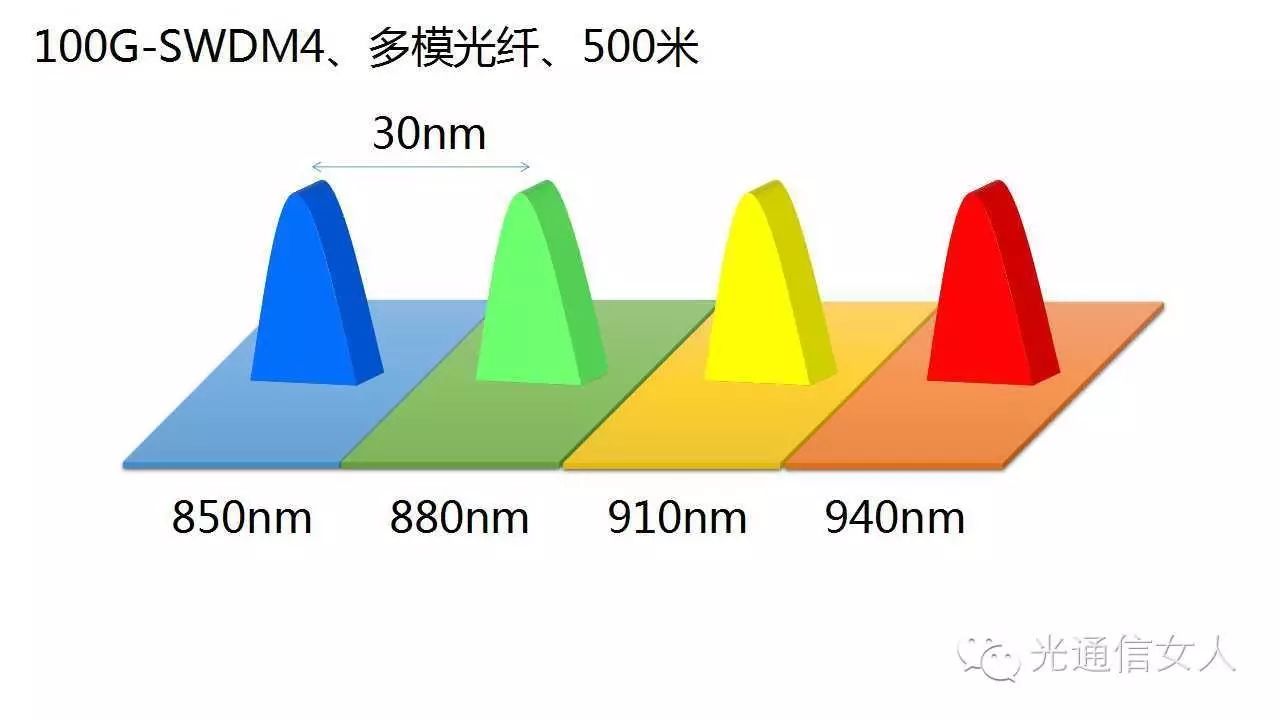
WBMMF fiber supports SWDM4 short wavelength division multiplexing.
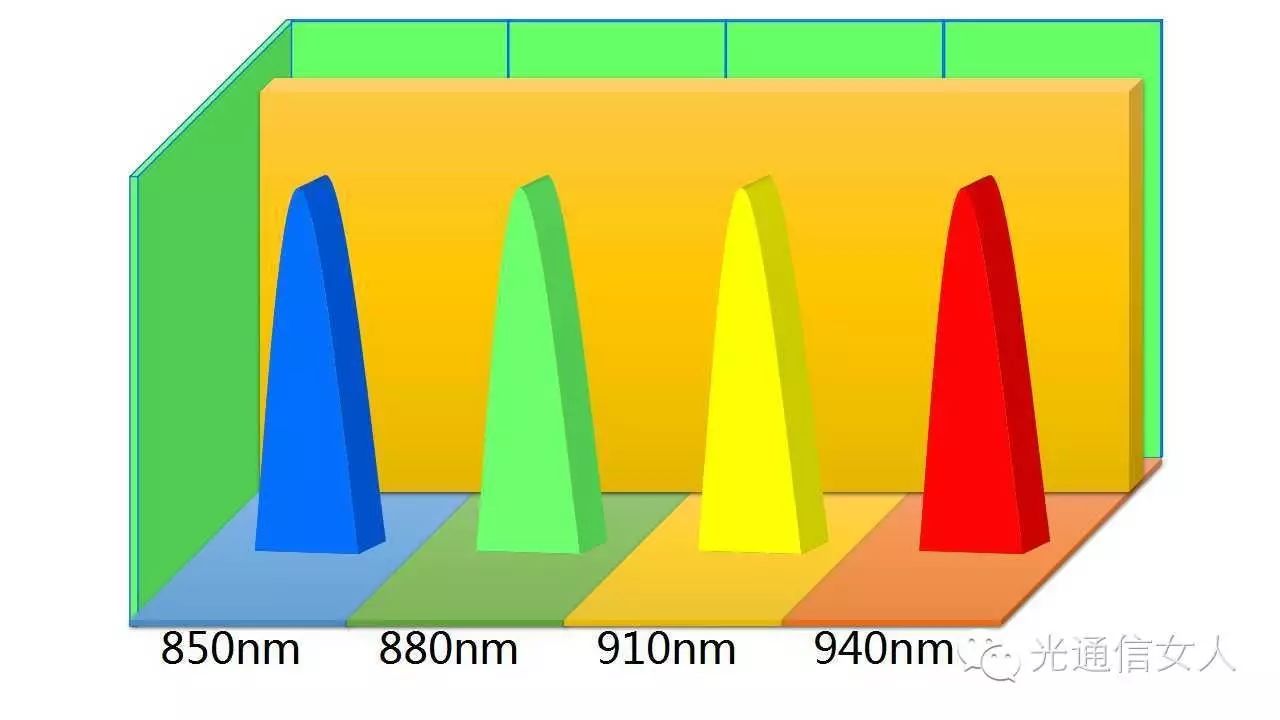
Ultimately, this is to lay the groundwork for 400G.
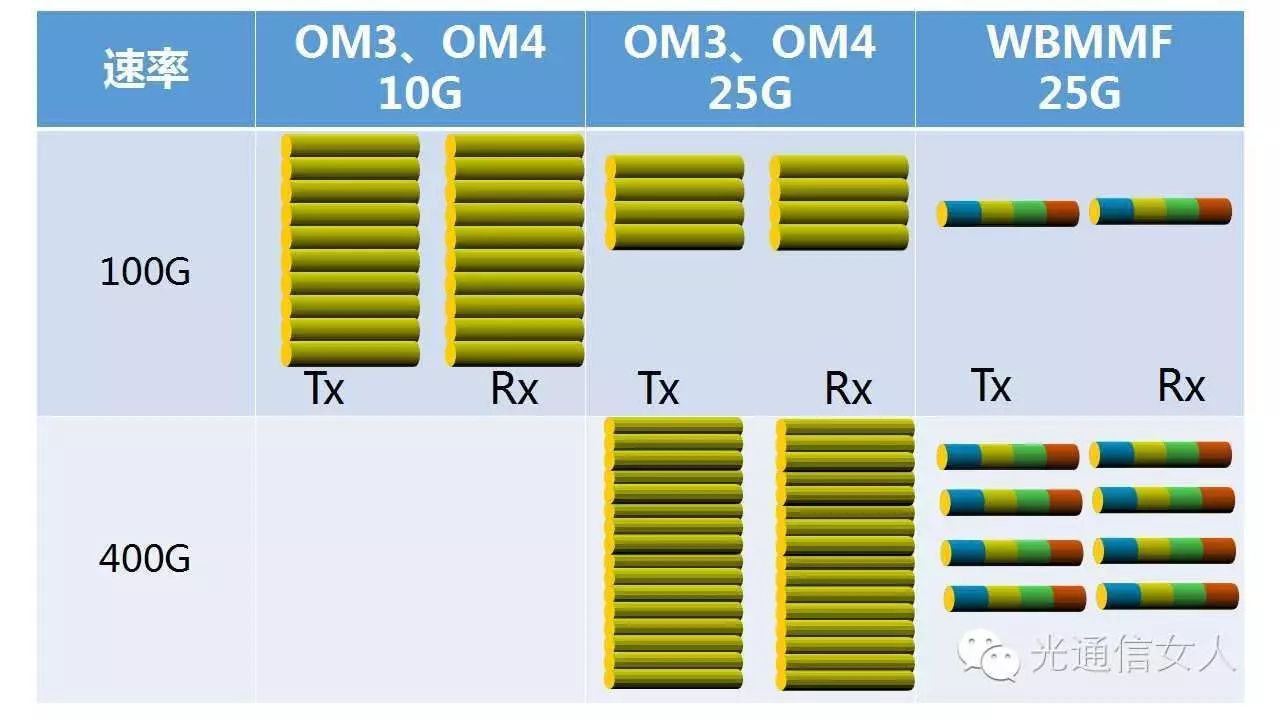
Using parallel multimode fiber to experiment with 400G short-distance transmission, 16*25G, with a total of 32 cores for one receive and one transmit. Indeed, scientists calculated theoretically, and it can make many engineers cry.
WBMMF, could it become the OM5? The onlookers are continuously paying attention.